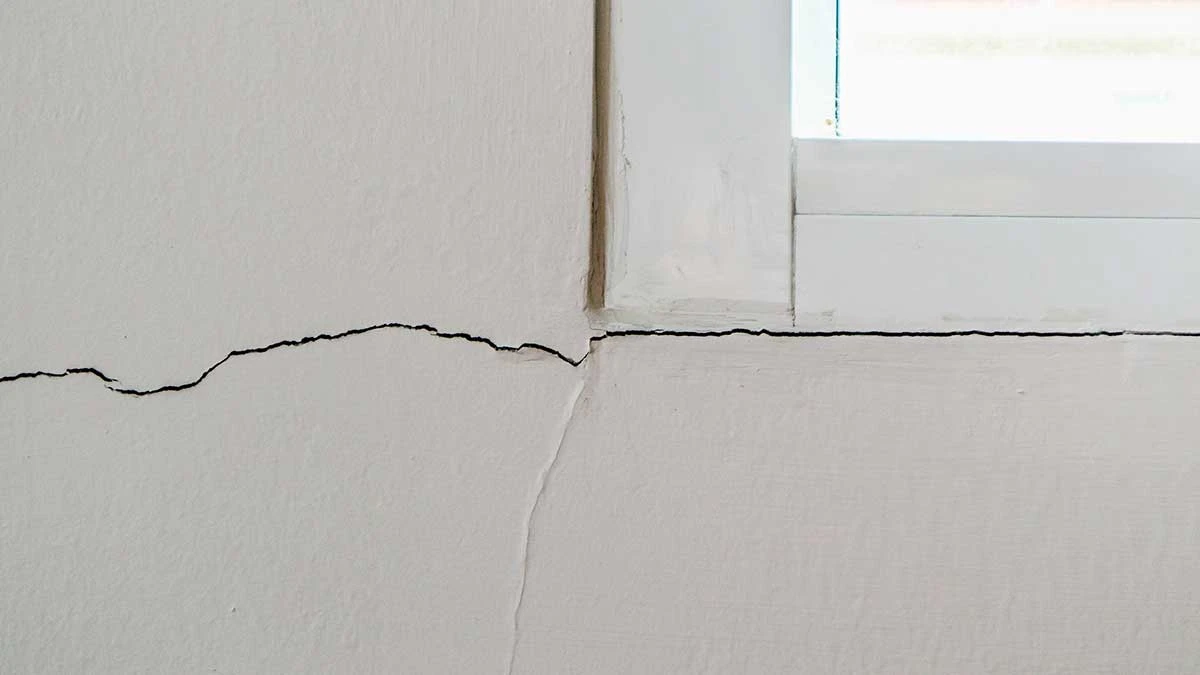Selling a home is already complex, but selling a house with foundation issues can be a real deal breaker. From the prospect of costly foundation repairs to navigating disclosure requirements and managing skeptical potential buyers, it’s easy to see why homeowners may struggle to find a way forward.
By understanding the assessment and repair process and making strategic choices, selling a house with foundation problems can be more manageable and even lead to a successful sale.
This guide will help you better understand foundation issues with your property, who to call if you suspect or want to identify any potential problems, and what steps to avoid.
Disclaimer: This is a general guide to point you in the right direction and must not be mistaken for legal or professional advice. Consult your attorney and local structural engineer when undertaking any property transactions.
Understanding Foundation Issues
What Are Foundation Issues?
Foundation issues refer to problems with a house’s base structure that impact its stability and safety. These issues can be as minor as hairline cracks or as severe as structural damage that affects the entire building.
Addressing these problems is critical when selling a home, as they can significantly influence the property’s market value.

Common Signs of Foundation Problems
Identifying foundation problems early can help in managing them effectively. Here are some common signs that suggest your house may have foundation issues:
- Cracking in Walls and Floors: Cracks in interior drywalls, ceilings, or floors.
- Uneven Floors: Floors have an irregular gradient or show bumps and slopes
- Sticking Windows and Doors:
- Water Intrusion: Signs of moisture around the home’s foundation or in the crawl space.
Understanding the severity of these foundation problems is essential for deciding whether to repair the foundation problem or sell the house.
Foundation Repair: When and How to Fix Issues
Should You Fix the Foundation Before Selling? Pros and Cons
Deciding whether to fix the foundation or sell it as is is a significant choice for homeowners. Here’s a breakdown of the pros and cons:
Pros:
Increased Buyer Trust: Addressing foundation damage before the listing can reassure buyers, making most buyers more confident about the property’s condition. This can lead to a smoother sales process.
Potential for a Higher Price: Homes with repaired foundations command a higher price, as buyers may be willing to pay more for a property without significant issues.
Cons:
Timing Delays: Repairs to foundation issues could delay the process if you want to sell quickly. Repairing foundation issues can take time, which may not align with your desired timeline for a fast sale.
High Repair Costs: Foundation repairs can vary widely—from around $2,000 for minor crack repairs to over $20,000 for significant work, like installing hydraulic piers.
This can be a considerable upfront expense for homeowners, and the final sale price does not guarantee a total return on investment.
Weighing these pros and cons can help you decide whether to proceed with repairs before putting your home on the market.
Different Foundation Repair Options
If you decide to proceed with repairs, several methods are available depending on the nature of the foundation issues:
- Hydraulic Piers: Often used to stabilize settling foundations by lifting and supporting them.
- Slab Jacking: Raising a sunken concrete slab by injecting a mixture beneath it.
- Crack Sealing: Sealing l-shaped cracks and small gaps to prevent further water damage.
- Drainage Solutions: Improving drainage around the house with foundation issues to prevent future problems.
Working with a Qualified Foundation Repair Contractor
Hiring a qualified foundation repair contractor is essential to ensure the work is done correctly and can ultimately save you money in the long run.
To find the right contractor, verify their credentials by ensuring they are licensed and insured. Your
Additionally, asking for references and speaking with past clients can provide valuable insights into their level of satisfaction and the quality of the contractor’s work.
Obtaining multiple estimates is also recommended. This helps you understand the project’s scope and compare the costs of necessary repairs, ensuring you make an informed decision.
Pricing a House with Foundation Issues
How Foundation Problems Affect Home Value
Foundation damage can significantly impact a home’s market value. Buyers often see foundation issues as a risk, which can deter them from making an offer or lead them to negotiate a lower price. The cost of major repairs can also influence how much cash buyers or real estate investors are willing to pay.
Setting the Right Asking Price for a House with Foundation Issues
Pricing a house with foundation problems requires a strategic approach. Here are some tips for setting a fair asking price:
- Consult a Structural Engineer: They can provide a detailed damage report and recommend repair methods, helping you justify your pricing.
- Offer a Discount: Can you reduce the price based on the estimated cost of foundation damage repairs? This allows buyers to tackle the issue themselves.
- Price Competitively: Compare your home with others that have sold with similar structural issues.
Navigating the Sale: From Disclosures to Buyer Negotiations
Legal Obligations: Disclosing Foundation Issues
When selling a house with foundation issues, you are legally required to disclose any known problems to buyers. Transparency is crucial to avoid legal repercussions. Here’s what to include:
- Inspection Report: Sharing a professional inspection report can help build trust.
- Detailed Repair Estimates: Providing potential buyers with estimates for the cost of repairs allows them to understand the scope of the issue.
- Full Disclosure: Don’t withhold information about past or present foundation problems.
Working with Real Estate Agents
A real estate agent with experience selling homes with structural damage can significantly improve the selling process. They are crucial in marketing the property, focusing on features that attract buyers and offset the foundation challenges.
For example, they can highlight advantages such as a prime location, large lot size, or recent upgrades to attract potential buyers. Beyond marketing, a skilled agent can also assist in negotiating with buyers.
They know how to identify and connect with buyers open to purchasing a property with foundation issues, ensuring a fair agreement is reached.
Also, a knowledgeable agent can help you manage the disclosure requirements, ensuring you meet all legal obligations related to foundation problems. This reduces the risk of future legal complications and builds trust with potential buyers.
Attracting the Right Buyers
Even if your home has foundation issues, there are effective strategies to make it more appealing to prospective buyers.
One way is to emphasize the property’s strengths, such as its location or any recent upgrades that add value. Highlighting these positives can help shift focus away from the foundation problems.
Offering repair allowances can also make a difference, as it provides buyers with the funds to address the issues themselves, making the purchase less daunting.
Additionally, considering cash offers from cash buyers or real estate investors can be a practical option.
These buyers are often more willing to purchase properties without repair contingencies, enabling a faster transaction and allowing you, the cash buyer, to close the sale more quickly.
Steps to Avoid Being Taken for a Ride in the Selling Process
- Get a Professional Assessment: A structural engineer can provide an unbiased view of the foundation’s condition.
- Hire a Reputable Agent: Find a real estate agent familiar with homes with foundation problems.
- Be Honest About the Damage: Transparency helps avoid issues during negotiations.
- Know Your Legal Rights: Understand your obligations around disclosure requirements to protect yourself legally.
Closing the Deal: Final Steps for a Successful Sale
How Foundation Issues Affect Appraisals
A house with foundation issues often receives a lower appraisal value. Appraisers consider structural damage and the estimated cost of foundation repairs when determining a home’s worth. This can impact your ability to sell, especially to buyers relying on mortgages.
Working with Cash Buyers for a Quick Sale
Working with cash buyers can be ideal for homeowners looking to sell quickly, especially when foundation damage repairs are involved. Cash buyers can close faster since they don’t need to wait for mortgage approvals, allowing quicker transactions.
They are often more willing to purchase the property as is, even if it requires significant repairs. However, it’s essential to know that cash buyers typically negotiate lower offers, considering the costs and risks associated with the structural integrity issues and needed repairs.
Success Stories: Overcoming Foundation Challenges
Many homeowners have sold homes with foundation issues by being transparent, setting the right price, and working with professionals.
For example, some sellers secured a fair price by offering repair credits, while others sold to real estate investors for a quick cash sale. With the right strategy, you can turn a problematic situation into a successful sale.
Final Thoughts: Turning a Challenge into an Opportunity
Selling a house with foundation issues requires preparation, honesty, and professional guidance. By following these steps, you can navigate the process and achieve a successful sale even when faced with structural challenges.
Need help with a professional inspection or repair estimate? Contact Level Engineering today to ensure you make the right decisions for your property’s unique needs.






